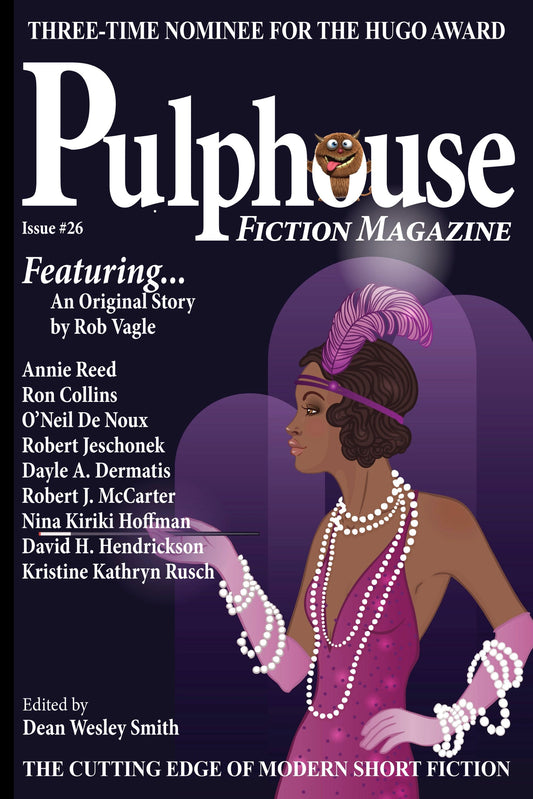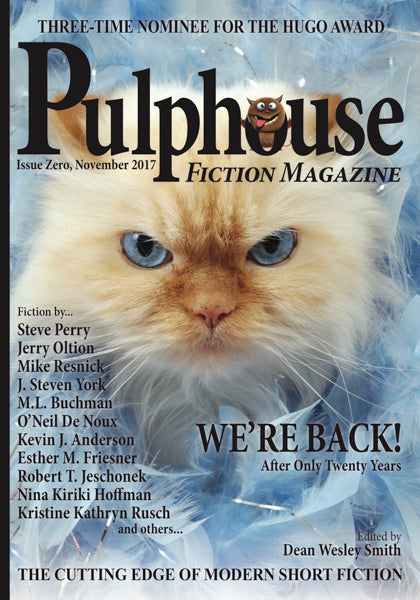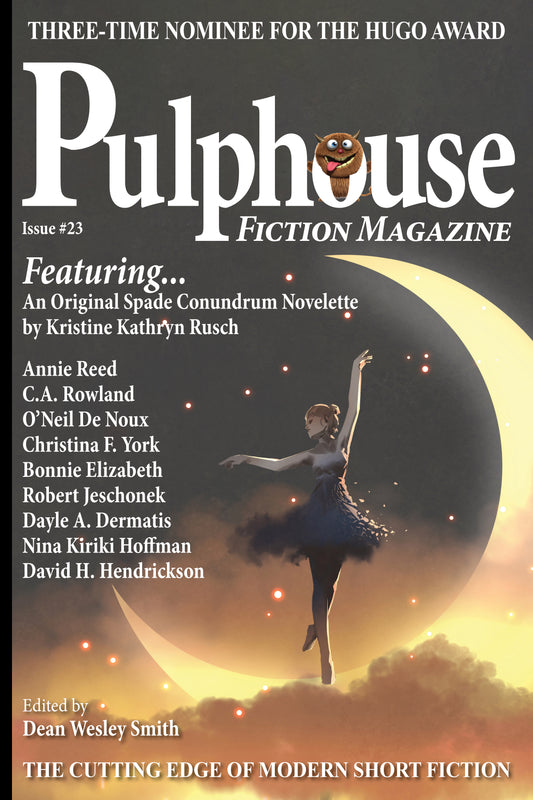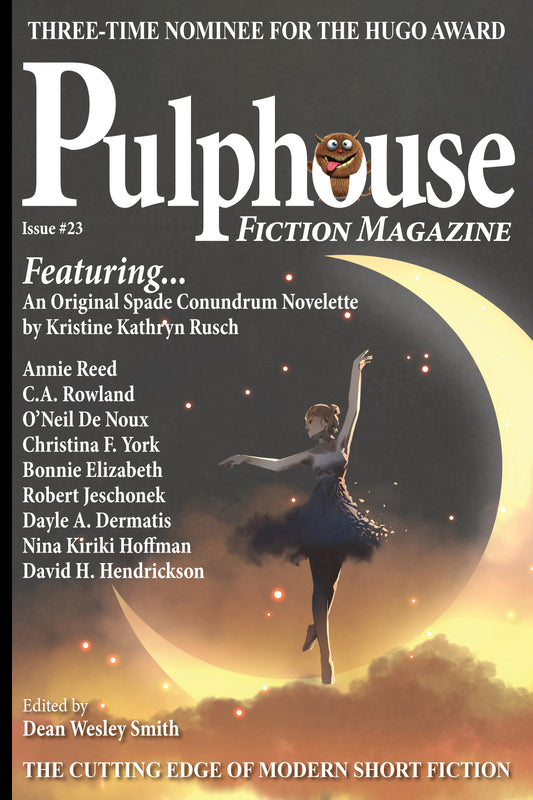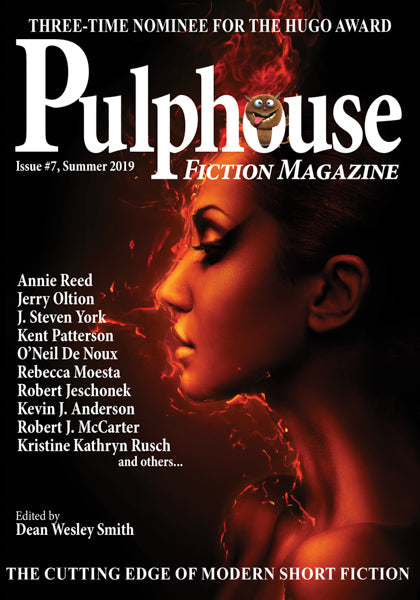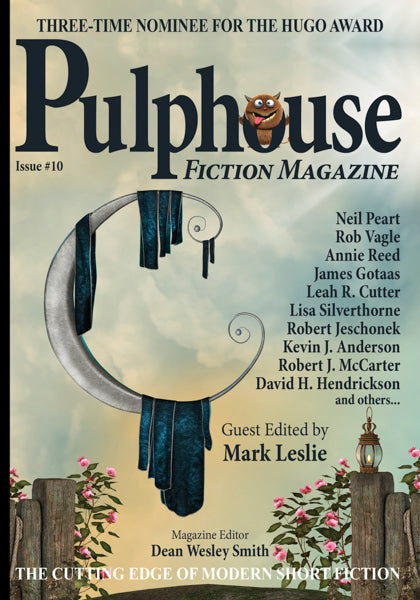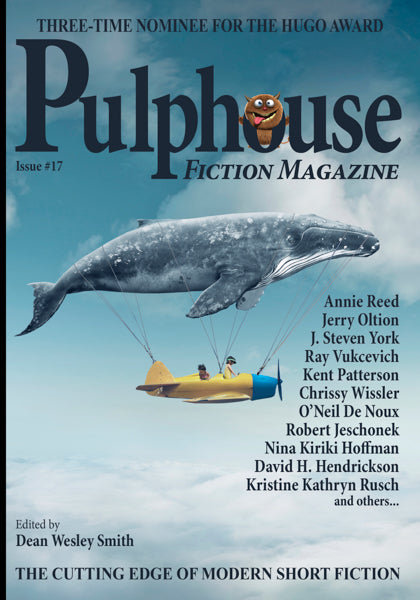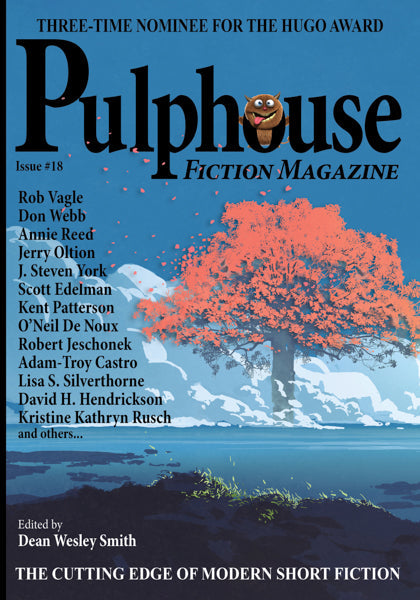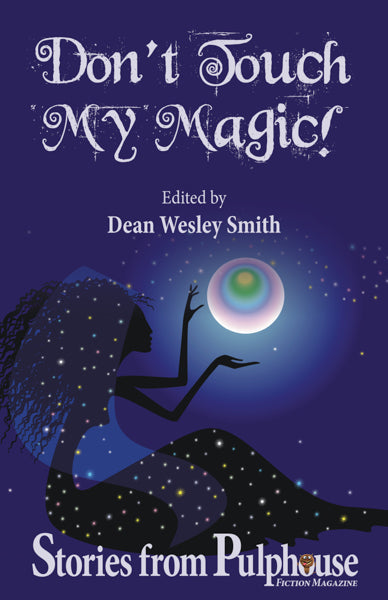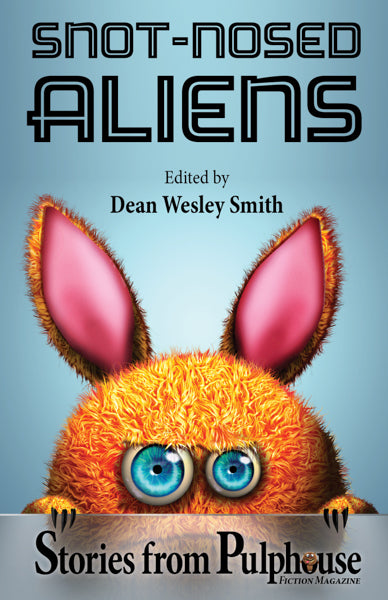
Dayle A. Dermatis
Dayle A. Dermatis is the author or coauthor of many novels (including snarky urban fantasy Ghosted, spicy rock-and-roll romance A Little Night Music, and YA lesbian romance Beautiful Beast) and more than a hundred short stories in multiple genres, appearing in such venues as Fiction River, Alfred Hitchcock’s Mystery Magazine, and DAW and Pocket Books.
Read All Dayle's Stories!
-
Pulphouse Fiction Magazine: Issue #26 Edited by Dean Wesley Smith
Regular price $6.99 USDRegular priceUnit price / per -
Pulphouse Fiction Magazine: Issue #00 Zero Edited by Dean Wesley Smith
Regular price $6.99 USDRegular priceUnit price / per$6.99 USDSale price $6.99 USD -
Pulphouse Fiction Magazine: Issue #29 Edited by Dean Wesley Smith
Regular price $6.99 USDRegular priceUnit price / per -
Pulphouse Fiction Magazine: Issue #23 Edited by Dean Wesley Smith
Regular price $6.99 USDRegular priceUnit price / per$6.99 USDSale price $6.99 USD
All About Dayle A. Dermatis
Dayle A. Dermatis is the author or coauthor of many novels (including snarky urban fantasy Ghosted, spicy rock-and-roll romance A Little Night Music, and YA lesbian romance Beautiful Beast)
and more than a hundred short stories in multiple genres, appearing in such venues as Fiction River, Alfred Hitchcock’s Mystery Magazine, and DAW and Pocket Books.
Called the mastermind behind the Uncollected Anthology project, she also edits anthologies, and her own short fiction has been lauded in many year’s best anthologies and Publisher’s Weekly in erotica, mystery, and horror.
She lives in a historic English-style cottage with
a tangled and fae back garden, in the wild greenscapes of the Pacific
Northwest. In her spare time she follows Styx around the
country and travels the world, which inspires her writing.
She’d love to have you over for a virtual cup of tea or glass of wine at DayleDermatis.com, where you can also sign up for her newsletter and support her on Patreon.
Favorite story in Pulphouse
For a long time, I didn’t think I could write a Pulphouse
story. That’s not to denigrate my writing—I just thought I didn’t write stories like that, and that was okay.
I wrote “Acceptable Losses” for an anthology workshop, I think,
where it didn’t sell or the anthology wasn’t “live.” But my
jaw dropped when Dean said if he was editing Pulphouse, he
would’ve bought the story, because of the last line.
When Pulphouse rebooted, of course I fired the story off.
Tangent
Online said,
The main character in "Acceptable Losses" by Dayle A. Dermatis
is a biologist who develops a way to grow large amounts of edible
seaweed in a barren area of Africa, providing food for those who are
starving. Her process is successful, but she pays a terrible price
when it proves to be deadly to a small percentage of those who make
use of it. The story concludes in an open-ended fashion, as the
biologist faces the difficult question of whether the benefit of her
procedure is worth the risk.
Fully developed characters make the tragedy at the heart of this story seem very real. The moral crisis facing the protagonist is an important
one. By leaving the answer up to the reader, the author forces us to
contemplate vital ethical issues concerning the welfare of the many
and the sacrifice of the few.
--
I wrote “Custard: A Romeo and Juliet Story (Sort of)” for an
anthology workshop, but one of the two editors for the volume was
from Europe, so the punchline fell flat. Thankfully, Dean Wesley
Smith remembered that he liked it, and happily bought it for
Pulphouse.
It also appears in Don’t Touch My Magic! Stories From Pulphouse.
Agnes
and Neil remain some of my favorite characters. Och aye!
--
-
Pulphouse Fiction Magazine: Issue #26 Edited by Dean Wesley Smith
Regular price $6.99 USDRegular priceUnit price / per -
Pulphouse Fiction Magazine: Issue #00 Zero Edited by Dean Wesley Smith
Regular price $6.99 USDRegular priceUnit price / per$6.99 USDSale price $6.99 USD -
Pulphouse Fiction Magazine: Issue #29 Edited by Dean Wesley Smith
Regular price $6.99 USDRegular priceUnit price / per -
Pulphouse Fiction Magazine: Issue #23 Edited by Dean Wesley Smith
Regular price $6.99 USDRegular priceUnit price / per$6.99 USDSale price $6.99 USD -
Pulphouse Fiction Magazine: Issue #07 Edited by Dean Wesley Smith
Regular price $6.99 USDRegular priceUnit price / per$6.99 USDSale price $6.99 USD -
Pulphouse Fiction Magazine: Issue #10 Edited by Mark Leslie
Regular price $6.99 USDRegular priceUnit price / per$6.99 USDSale price $6.99 USD -
Pulphouse Fiction Magazine: Issue #17 Edited by Dean Wesley Smith
Regular price $6.99 USDRegular priceUnit price / per$6.99 USDSale price $6.99 USD -
Pulphouse Fiction Magazine: Issue #18 Edited by Dean Wesley Smith
Regular price $6.99 USDRegular priceUnit price / per$6.99 USDSale price $6.99 USD -
Don’t Touch My Magic!: Stories from Pulphouse Fiction Magazine Edited by Dean Wesley Smith
Regular price $5.99 USDRegular priceUnit price / per -
Snot-Nosed Aliens: Stories from Pulphouse Fiction Magazine Edited by Dean Wesley Smith
Regular price $5.99 USDRegular priceUnit price / per -
I Heard the Twang of Love and It Hurt My Ears
Regular price $5.99 USDRegular priceUnit price / per

